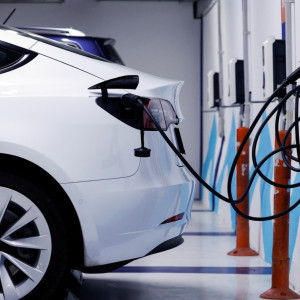Goodbye to the combustion engine—most electric car owners would never go back to gasoline


Buying an electric car is a decision that takes time, right? But what we never really stop to think about is what happens when it's time for the next decision: changing vehicles. Do we go back to combustion engines?
Do we stop buying cars altogether? Well, Zapmap, a British company,[1] surveyed nearly 3,800 electric vehicle owners to find out what comes next. It's worth noting that the survey was conducted in the UK, one of the markets where electric vehicles are most established.
But, against all odds, 97% of drivers say they would not return to combustion engines... whattttttt?! Yep, that's right. Only 3% said they would go back to diesel or gasoline, while the overwhelming majority of users who have already made the switch to electric vehicles are sticking with them. (Finally, some good news for our friend Musk!)
Switching to electric: a big leap
Yes, at first there's fear, that's normal.
It's something new. A few years ago, switching to an electric car was almost an act of faith. There were no charging stations, prices were sky-high (well, Tesla's still are...)[2] But now this study shows that only 3% believe switching to an electric vehicle was a bad decision and wouldn't do it again.
And we love that stat, it's a step toward a cleaner future, slowly but surely becoming a real, reliable, and most importantly, zero-emission alternative!
Less spending, more eco-consciousness
One of the most common reasons mentioned by participants was saving on fuel and maintenance. In a country like the UK, where fuel is expensive, having a car that drastically cuts these costs is a major advantage. Also, while the initial price of electric cars is still higher than traditional ones, users say it's worth it, thanks to lower cost per mile and fewer visits to the mechanic (though we know that's not always the case).
Driving green also feels good
But it's not just about money.
Many users choose electric vehicles because they want to contribute to the planet's sustainability and the green transition, that feeling of "doing the right thing" (even if it sounds cliche) is what drives these owners. Some even mention that almost emotional satisfaction of gliding silently down the road with no fumes or vibrations. For many, driving an electric car has become a much more pleasant and less stressful experience.
Price differences
Choosing between an electric vehicle or a mid-range diesel car, cost is our main key factor, truth or not?
So here you have a comparison chart between them, and we let you draw your own conclusions!
| Cost Category | Electric Vehicle (EV) | Diesel Vehicle |
| Purchase Price (Base) | £35,000 | £30,000 |
| Charging/Fuel (12,000 mi/year) | £500-£700 | £1,500-£1,800 |
| Maintenance | £300-£500 | £700-£1,000 |
| Insurance | £1,200 | £1,000 |
| Registration & Taxes | £300 | £300 |
| Battery/Part Replacement (avg/year) | £200-£300 | £150-£200 (DPF, etc.) |
| Resale Value (5 years) | Moderate to High | Low to Moderate |
| Environmental Cost (taxes/penalties) | Often Incentivized | Increasingly Penalized |
Are we witnessing the end of the combustion engine?
The most striking thing about this survey is the high loyalty of electric car drivers. The fact that only 3% are considering going back to a conventional car sends a clear message to the auto industry: this is not a trend, it's a shift in consumer habits. This data is also a wake-up call for manufacturers still hesitant about betting on electric vehicles, now is the time, and yes, there's a market for it!
If almost everyone who tries it wants to stick with it, it's just a matter of time before the market leans fully in this direction. Zapmap's survey may focus on the UK, but its message is universal. Electric cars are no longer a promise for the future, they're a reality of the present!